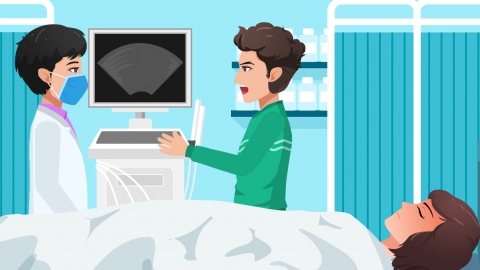Can water be administered during the emergency treatment of heatstroke?
Generally, during the emergency treatment of heatstroke, the decision to give the patient water should be based on whether the patient is conscious. If symptoms occur, it is recommended to seek timely medical treatment at a regular hospital. Detailed analysis is as follows:

If the patient is conscious and able to swallow independently, small amounts of lukewarm salted water or oral rehydration salts can be given repeatedly to replenish lost fluids and electrolytes, alleviating symptoms of dehydration. In this case, providing water helps maintain basic body metabolism.
However, if the patient is confused or unconscious and has lost the ability to swallow independently, giving water arbitrarily may cause liquid to enter the airway by mistake, leading to coughing, suffocation, or even worsening lung damage. In such cases, giving water is strictly prohibited, and fluids must be replenished through professional methods such as intravenous infusion.
When rescuing a patient with heatstroke, rapidly move the patient to a cool and well-ventilated area and use cool water to wipe the body for cooling; regardless of whether the patient is conscious or not, call emergency services as soon as possible and have professional medical personnel provide treatment; if the patient vomits, turn their head to one side to prevent vomit from blocking the airway; never forcibly give water or food to a patient who is unconscious, to avoid causing danger.







